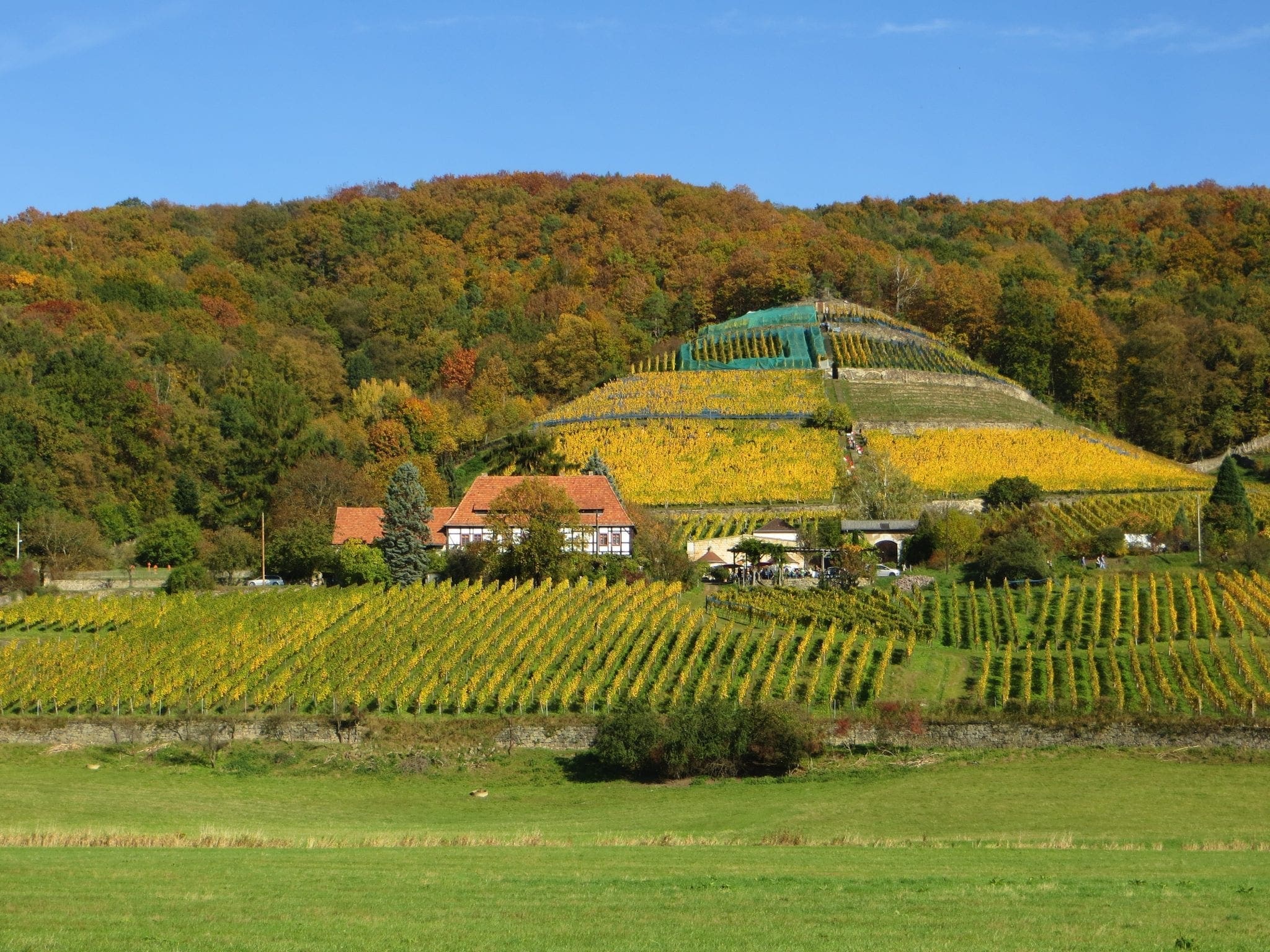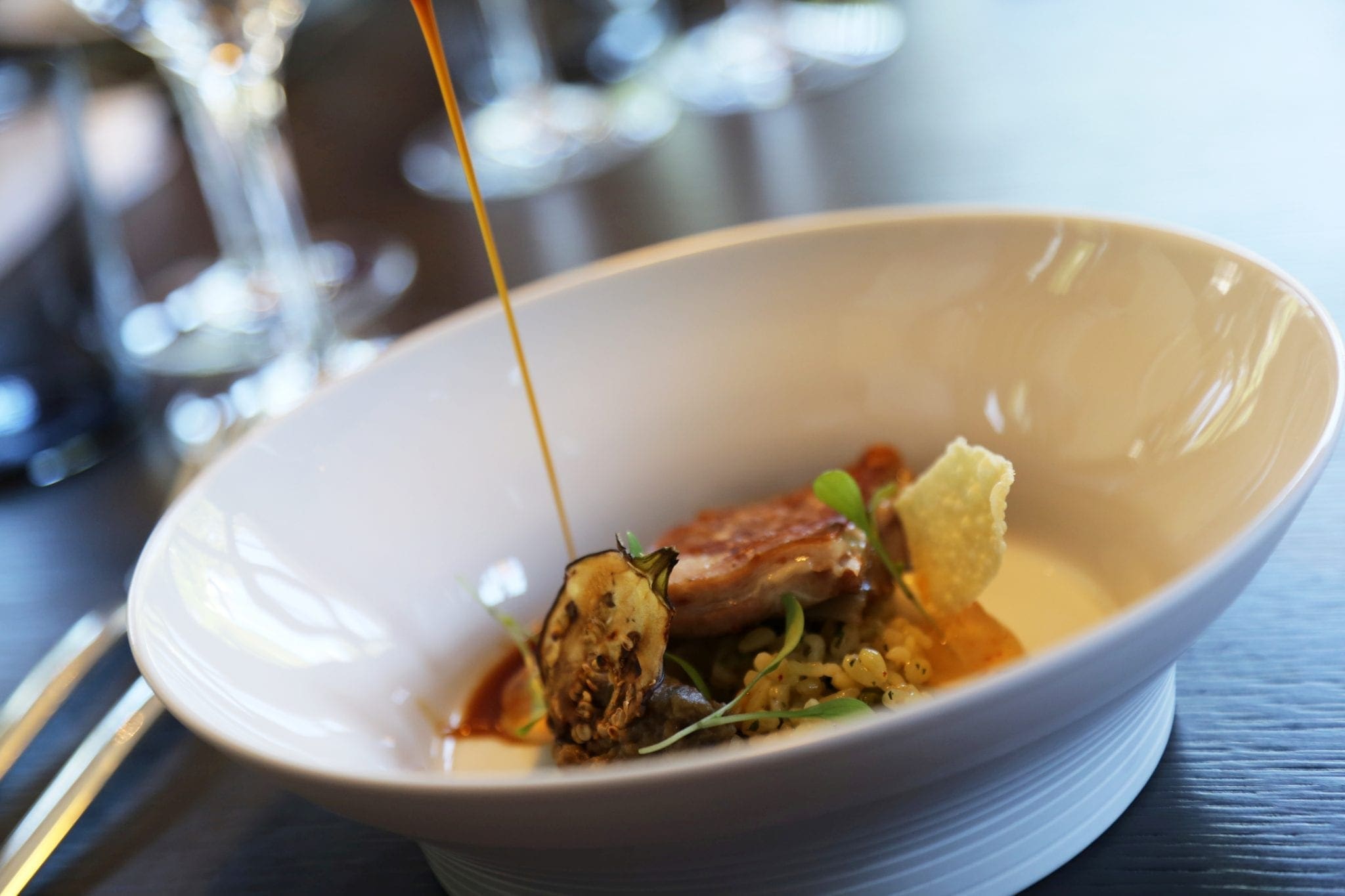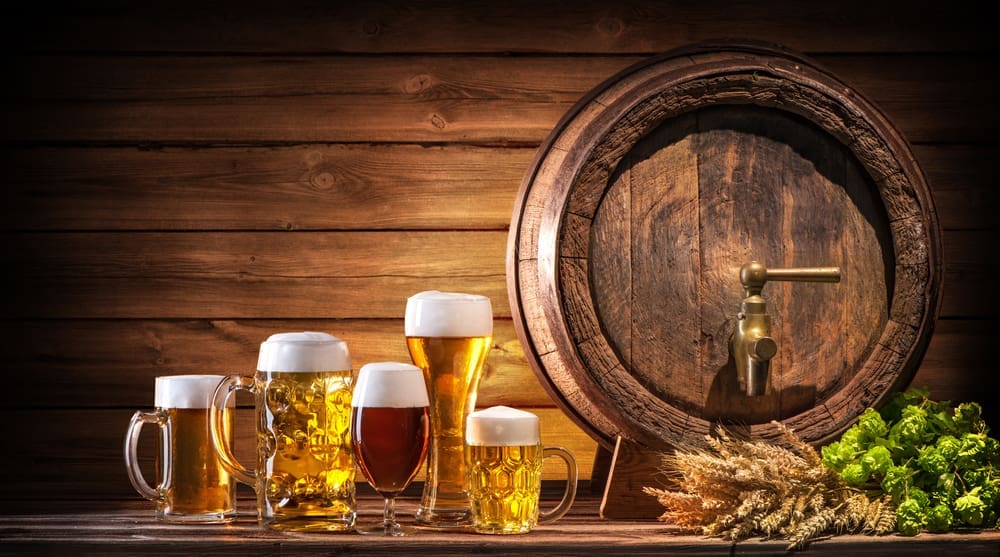Dresden is an extraordinarily green city. It is not just the Elbwiesen, those beautifully green meadows that stretch along the Elbe River, or the Dresden Heath and our parks, Dresden is also vineyards, orchards and fields! The people of Dresden love nature and love the pleasure of indulging in those things that nature gives us. They have picnics on the Elbwiesen, meet friends in cosy beer gardens and seasonal wine taverns and are sure to be able to recommend many pubs and restaurants with excellent cuisine. The fact that Dresden is so green and such a pleasure loving place goes hand in hand. The fields of the Saxon Elbeland, the city’s gardens, orchards and vineyards provide the fresh produce that Dresden’s kitchens turn into culinary delights.

Gourmets know: the best in culinary delights comes straight from the field, the garden or barn. The kitchen’s job is to take the best and make it better. Dresden has all the ingredients it takes to create the greatest in culinary delights. For example: what other large city can claim to have the best German organic farmer?
In 2016 that title was granted to Bernhard Probst, head of the organic farm Vorwerks Podemus that is located on the outskirts of Dresden. Today, the people of Dresden buy organic produce from the farm’s own “Vorwerk Podemus” brand supermarkets.
Fruit, berries and bees
Dresden, the green metropolis, has many more agricultural qualities to offer. It is the centre of German fruit farming and fruit cultivation. The Julius-Kühn-Institute, located in the Pillnitz district, preserves old types of fruit in the “Deutschen Genbank Obst” (German Fruit Gene Bank).
The healthy aronia berry is cultivated in the Saxon Elbeland around Coswig and processed in Dresden under the “Aronia Original” brand to bring forth products such as aronia juice and aronia honey.
And speaking of honey: Dresdner Stadthonig (honey from the city of Dresden) is available in Dresden’s official tourist information offices. The honey comes from bees that live right in the city. Their hives can be found at the Dresdner Kulturpalast, the Deutsches Hygiene Museum Dresden and at the Kraftwerk Mitte. For more information, visit the site of the Dresden beekeepers association: www.imkerverein-dresden.de
The city of the chefs

Dresden not only has all the ingredients, it also has many true masters of the art of cooking. For example in the “bean & beluga”: the chef here is Stefan Hermann, who “Gault Millau” awarded the title of “Chef of the Year” in 2016. The “bean & beluga” is not just a restaurant for connoisseurs, it is also a wine bar, delicatessen and cooking school. Stefan Hermann and his team also run the restaurant “William” in the Dresdner Schauspielhaus theatre and the restaurant “Atelier Sanssouci” in Radebeul. Sharing an historic house nestled in amongst the vineyards with the hotel “Villa Sorgenfrei”, this is a location that gives you both the finest in cooking and hospitality.
Another world-class cook, Benjamin Biedlingmaier, entertains his guests in the Dresden restaurant “Caroussel”. The restaurant is listed with three toques in “Gault Millau”, and with one star in “Michelin”, with the inspector writing that the restaurant has “fine, expressive dishes made from very good products”. This shows that the “Caroussel”, situated in the Baroque Quarter Inner Neustadt, in the hotel “Bülow Palais”, one of the top hotels in Germany, easily meets the standards of its surroundings.
The connoisseur’s selection of great restaurants in Dresden does not end there by any means. There is a long list of restaurants that are recommended by famous testers and whose menus excite the palates of true connoisseurs. Just a few examples: an excellent spot for a romantic dinner is “Alte Meister” at Theaterplatz, to eat in style try “Kastenmaiers” in Kurländer Palais.
“Schmidt’s” on the historic site of the Deutschen Werkstätten in Dresden Hellerau and “Villandry” in Neustadt thrill their diners with modern interpretations of culinary classics. “Elements DELI & Restaurant”, run under the aegis of the award-winning chef Stephan Mießner, offers excellent cuisine in the unusual setting of the industrial area of the Dresden Albertstadt.
Illustrious guests in a vaulted cellar
Traditional Saxon dishes are served in the “Sophienkeller” and in the “Pulverturm” – in the rustic vaulted cellars in the heart of Dresden’s Old Town. The dishes are lavish, the guests illustrious. Augustus the Strong, Countess Cosel, Count Brühl and the jester Fröhlich all come together to entertain the visitors along with jugglers and musicians. You will not only hear a few anecdotes about Saxon history, you will also discover what the mysterious Dresden tradition of “Trichtertrinken” is all about. In the inn “Dresden 1900” – which is also located in the heart of the historic old town – you can even enjoy Saxon cuisine in an historic tram. Or you can also enjoy a wide variety of vegetarian food in a rustic setting in the restaurant BrennNessel located close to the Carl Maria von Weber University of Music and Kraftwerk Mitte Dresden.
The pleasures of beer and wine

When the time is ripe for beer or wine we would recommend not using a funnel, but rather toasting in style with the right drink in the right glass. The large brands, Radeberger, brewer of the first German Pilsner or Dresdner Feldschlößchen are well known. Founded in 1460, Meissner Schwerter brews specialty beers and is the oldest private brewery in Saxony. The oldest organic brewery in Saxony delivers its beers to numerous bars and pubs, especially in Dresden Neustadt. Numerous microbreweries guarantee that there is something to satisfy every taste.
A profound insight into the world of Saxon viticulture can be had at the Saxon State Vineyard Schloss Wackerbarth in Radebeul. Europe’s first discover and experience wine-growing estate is situated in an elegant chateau. The Belvedere, situated in front of the steep vineyard at the Jacobstein is one of the most famous tourist attractions of the Saxon Elbeland. On guided tours through vineyards and cellars, winegrowers explain how the famous wines and sparkling wines of Schloss Wackerbarth are made. The highlight of each tour is the tasting. A good way to round off the tour is to visit the vineyard’s own inn, where fine food is of course accompanied by an excellent glass of wine.
For 25 years, the art of good food, good wine and beautiful landscapes have been the unifying features of the Saxon Wine Route that stretches from Pirna via Dresden, Radebeul and Meißen all the way to Diesbar-Seußlitz. Vineyards and taverns open for the wine season are spread out along the route as well as many hills that offer breathtaking views of the Elbe River valley.
Those who value culinary delights should follow the recommendations of a seal of quality: Besonders empfohlen im Weinland Sachsen are places that not only offer excellent food, but also offer a bounteous selection of regional wines. The hosts of the recommended restaurants are proven experts of Saxon wines and wine growing. They are more than happy to pass on what they know to their guests and also offer wine tasting. The secret of enjoying “the Dresden way” needs no explanation. All you need to do is open up to the magic of the moment. For example in the vineyard of Schloss Albrechtsberg, where grapes grow under ideal conditions and enjoy a view of downtown Dresden too. Visitors are welcome in the seasonal wine tavern in the vineyard. Enjoying tarte, Saxon wine and the pleasure of the moment, your eyes will wander from the green vine leaves to the silhouette of Dresden’s historic old town, back to the sunlight sparkling through the wine in your glass. That is the taste of the sweet life in Dresden.



